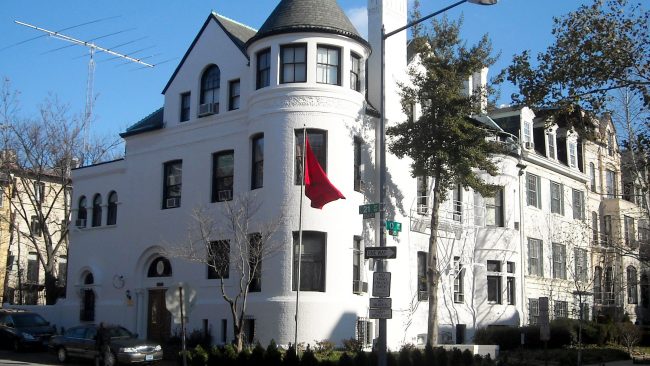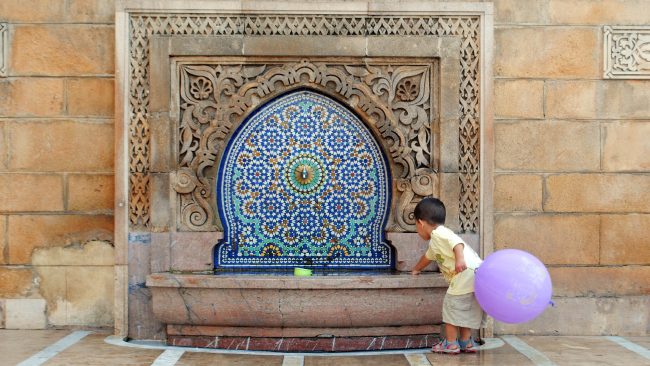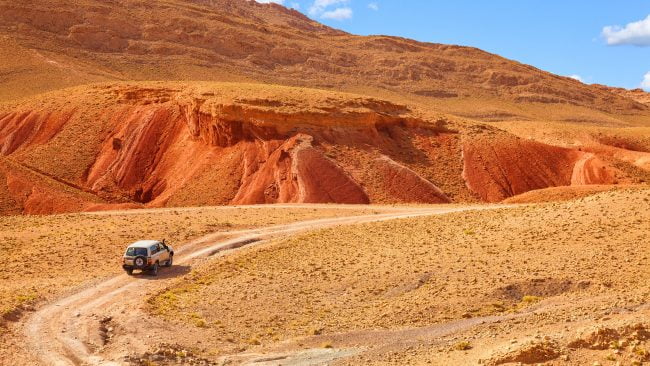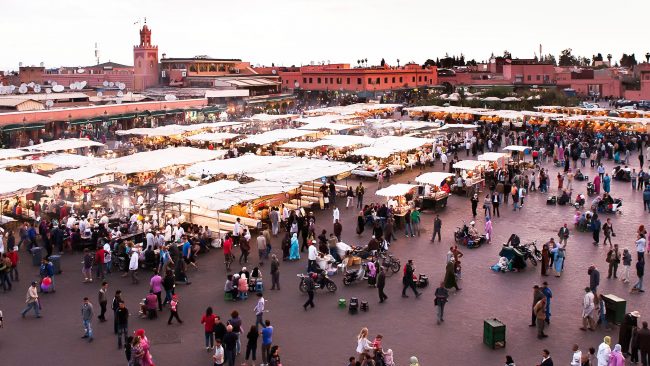If you want to travel to Morocco, it is important that you know what documents you must have, as citizens of some countries need a visa. Therefore, in this article, we tell you about everything you need to go and we give you important recommendations.
Below you have an index with all the points that we are going to deal with in this article.
Article Index
- 1.
- 1.1.
- 1.2.
- 2.
- 3.
- 4.
Necessary documents
Depending on the nationality of the traveler and the reason for the trip, some people need a visa to be able to travel to Morocco.
Passport Number
Citizens of the following countries do not need a visa To enter Morocco, just a valid passport for a minimum of three months:
- A: Germany, Andorra, Saudi Arabia, Algeria, Argentina, Australia, Austria
- B: Bahrain, Belgium, Brazil, Bulgaria
- C: Canada, Chile, China, Cyprus, South Korea, Ivory Coast, Croatia
- D: Denmark
- E: United Arab Emirates, Slovakia, Slovenia, Spain, United States of America
- F: Philippines, Finland, France
- G: Greece, Guinea
- H: Hong Kong, Hungary
- I: Indonesia, Iceland, Italy
- J: Japan
- K: Kuwaiti
- L: Latvia, Liechtenstein, Lithuania, Luxembourg
- M: Mali, Malta, Mexico, Monaco
- N: Niger, Norway, New Zealand
- O: Oman
- P: Netherlands, Peru, Poland, Portugal, Puerto Rico
- Q: Qatari
- R: United Kingdom, Czech Republic, Republic of Congo, Romania
- S: Senegal, Singapore, Sweden, Switzerland
- T: Tunisia, Turkey
- V: Venezuela
People with the above nationalities can stay in the country for three months, with the exception of those from Hong Kong, who have a maximum of 30 days.
However, it is possible to extend the stay by requesting it from the Moroccan authorities. Once in the country, you must fill out an entry and exit form.
Visa
People from countries that we have not named above, such as Colombia, Panama, Uruguay, Costa Rica or Ecuador, do need a visa to enter the country. To obtain this, the following documentation must be presented at the Moroccan Embassy at least 45 days before the trip:
- Application form filled in capital letters.
- 2 recent color passport-size photos (4 x 3 cm).
- Identification document.
- Passport valid for more than 90 days.
- Photocopy of passport.
- Return ticket.
- Itinerary of the trip: hotel reservation, certificate from the family who will take care of the expenses, request from the travel agency or recommendation from the Moroccan Ministry of Tourism.
- Employment letter, Certified Public Accountant or pension resolution.
- Recent bank statement.
All this documentation must be presented in an identified envelope. The price of a single entry visa is 220 dirhams (the currency of Morocco), 330 the two-entry one. There are also collective visas for groups, which cost 60 dirhams per person.
As long as the airport is not left and the next flight is booked on the same day, if Morocco is only a transit country between the destination of origin and a third territory, a visa is not required.
Special situations
If you want to go to Morocco to work, you should know that you will need a work visa or a permit. For this, it is required to have a work contract approved by the Moroccan Ministry of Employment.
On the other hand, when traveling with children or babies, the same papers are required as those of adults. Depending on the country of origin, parental authorization may be required if you do not go with one of them.
If you want to travel with your pet, as for example a dog, you must carry a health certificate issued in the last six days and a certificate of the rabies vaccination less than 6 months old.
Likewise, if you are going to marry a Moroccan person (mixed marriage) in this country, you will need the Certificate of Marriage Capacity, in addition to presenting numerous documents such as the birth certificate (all papers must be translated and legalized).
Transport
If you are going to travel by boat to Morocco (it is common to do it from Spain through the ports of Algeciras or Tarifa), the access procedures, such as filling in the entry document, will be carried out on the boat.
In contrast, if you are going to arrive with your car, motorcycle or motorhome, you will be asked for the following documentation at the entrance:
- Completed application form (available at customs or online).
- Driving license.
- Circulation permit.
- International Insurance.
- If the car is not yours or is a company, authorization from the owner.
It is mandatory to leave with the vehicle with which you have entered Morocco. In addition, only one per person is accepted.
Tips
As indicated by the Ministry of Foreign Affairs and Cooperation of Spain, the health system in Morocco is good in large cities and of low quality in rural areas. Although in this case it is not always required, when one leaves their own country, it is advisable to take out medical insurance.
To prevent unwanted diseases, you should avoid trying food from street stalls and it is advisable to drink bottled water. As for vaccinations, there are no mandatory ones. The ones that are most recommended to have up to date are the following:
- Typhoid fever
- Hepatitis A
- Hepatitis B
- Tetanus-diphtheria
- MMR (measles, rubella and mumps)
In terms of security, as is the case in many countries, Morocco lives under terrorist threat, although there have been no recent attacks. However, it is a recommended destination for both families and girls traveling alone, as long as some guidelines are followed. You can find more information in the following article: Security in Morocco, current situation and dangers.
Traveling to Morocco during Ramadan is not a problem. It is only possible that you will find some restaurants closed due to the fasting that they do during the day.
As for gay people, in Morocco homosexuality is illegal and it is persecuted among its inhabitants. However, with tourists there are usually no problems, although there have been some unwanted situations. You can learn more about this topic in this article: The 10 worst tourist destinations for the LGBT community.
Finally, in Spain you will find the Moroccan Embassy, specifically, in calle de Serrano, 179. In addition, there are consulates in numerous cities such as Barcelona, Valencia and Sevilla. This is important if, for example, you are a Colombian living in Spain who wants to get to know Morocco.
This article has been shared 402 times. We have spent many hours collecting this information. If you liked it, share it, please:







